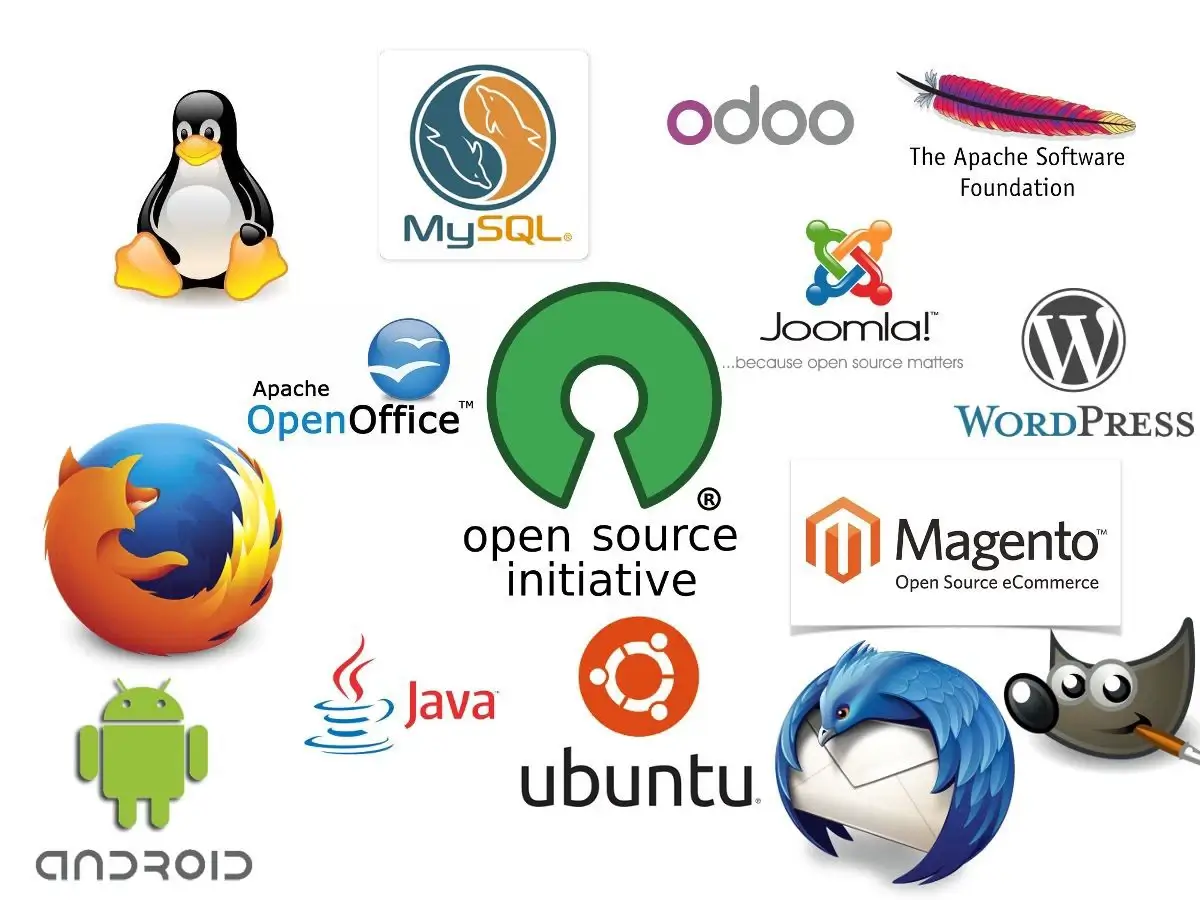Software engineering, a discipline that revolutionized the tech world, began in the 1960s as a structured approach to software development. Today, it’s a global profession with engineers from diverse backgrounds contributing to major tech breakthroughs. The evolution of programming languages, from Assembly to Python, illustrates the field’s dynamic nature.
This article delves into 17 fun facts about software engineers, offering insights into their history, diversity, innovations, and the languages that became their tools of creation.
1. The Birth of Software Engineering: A Historical Glimpse
The term “software engineering” was first used in 1968 during a NATO conference, marking a significant shift in software development. Faced with the “software crisis,” where software complexity outgrew traditional programming, the field sought structured, engineering-based methodologies.
This pivotal moment laid the groundwork for modern software development practices.
2. Global Diversity: Software Engineers from 4 Continents
Reflecting a microcosm of global diversity, software engineering sees significant contributions from Asia, North America, Europe, and Africa. Countries like India and the United States are notable hotspots.
In Silicon Valley, over 50% of engineers are from diverse international backgrounds, enriching the field with varied perspectives and problem-solving approaches.
3. Software Engineers and the Evolution from FORTRAN to Python
The journey from FORTRAN in the 1950s to Python in the 1990s reflects software engineers’ adaptability. FORTRAN, designed for scientific computing, initiated high-level programming.
The 1960s brought COBOL and LISP, enhancing business processing and AI research. C and C++ in the 1970s and 1980s offered engineers versatility and object orientation, reshaping software design. Java’s 1990s debut broadened web and mobile app development. Python’s simplicity later catered to diverse applications like web development and data science.
This progression underscores software engineers’ pivotal role in advancing technology and adapting to changing programming paradigms.
4. Software Engineers in Tech Breakthroughs: Internet to AI
Software engineers have been pivotal in breakthroughs from the internet’s inception in the late 1960s to recent advancements in AI. Tim Berners-Lee, a software engineer, invented the World Wide Web in 1989, reshaping global communication.
The evolution of AI, particularly in the last decade, further highlights the critical role of software engineers in modern tech advancements.
5. The Surprising Salaries of Software Engineers Globally
Software engineering is not only intellectually rewarding but also financially lucrative. As of 2024, the average salary for a software engineer in the U.S. is approximately $110,000 annually, while in India, it’s around ₹900,000 (about $12,000 USD). These figures vary widely, reflecting the demand and cost of living in different regions.
In tech hubs like Silicon Valley, senior engineers can earn upwards of $200,000, showcasing the high value placed on their skills.
6. Famous Software Engineers Who Changed the Tech World
Several software engineers have left indelible marks on technology. Linus Torvalds, the creator of Linux, revolutionized operating systems with his open-source approach.
Grace Hopper, a pioneer in developing compilers, significantly contributed to COBOL’s creation, and Tim Berners-Lee invented the World Wide Web, transforming global information access and communication.

Linus Torvalds is a Finnish-American software engineer best known for initiating the development of the Linux kernel and the Git version control system. Image: wired.com
7. The Psychology of Problem-Solving in Software Engineering
Software engineering often involves complex problem-solving, requiring a unique blend of logical thinking and creativity.
Cognitive psychology studies indicate that software engineers frequently use abstract reasoning and pattern recognition in their work. This cognitive flexibility allows them to find innovative solutions to intricate problems, a skill that sets apart great engineers.
8. Unusual Work Environments of Software Engineers
Beyond the typical office setup, some software engineers work in unconventional environments. For example, those working on underwater communication systems may operate in marine research facilities, and engineers developing aerospace software often work in simulated space environments.
These unique settings demonstrate the diverse applications of software engineering in various industries.
9. The Impact of Open Source on Software Engineering
Open-source software has significantly impacted the field of software engineering. Platforms like GitHub host over 100 million repositories as of 2024, facilitating collaboration and innovation among engineers worldwide.
This movement has democratized software development, allowing individuals and small teams to contribute to large-scale projects, fostering a culture of shared knowledge and community-driven development.

Image: lunasec.io
10. Education Paths: The Diverse Backgrounds of Software Engineers
Software engineering is unique in its diversity of educational backgrounds. While many engineers hold degrees in computer science, a growing number come from fields like mathematics, physics, and even humanities. Self-taught programmers are also a significant part of the workforce.
This variety in educational backgrounds contributes to diverse problem-solving approaches and innovation within the industry.
11. Women in Software Engineering: Breaking Stereotypes
Women are increasingly making their mark in software engineering, a field historically dominated by men. As of 2024, about 20% of software engineers globally are women, a number that has been steadily growing.
Pioneers like Ada Lovelace, often regarded as the first computer programmer, and modern figures like Sheryl Sandberg, have inspired many women to pursue careers in this field, challenging stereotypes and diversifying the tech landscape.

Ada Lovelace, a 19th-century English mathematician, is celebrated as the first computer programmer for her work on Charles Babbage’s early mechanical general-purpose computer, the Analytical Engine. Image: codology.org
12. The Role of Software Engineers in AI and Machine Learning
Software engineers play a crucial role in the burgeoning fields of Artificial Intelligence (AI) and Machine Learning (ML). They are instrumental in developing algorithms that power AI systems, from natural language processing to predictive analytics.
As AI and ML continue to advance, the demand for skilled software engineers in these areas is surging, highlighting their importance in shaping the future of technology.
13. Software Engineers’ Contributions to Healthcare Innovations
Software engineers have made significant contributions to healthcare innovations. They develop software for managing patient records, telemedicine applications, and advanced diagnostic tools.
The role of software engineers became particularly crucial during the COVID-19 pandemic, where they contributed to the development of contact tracing apps and data analysis tools for tracking the virus’s spread.
14. The Environmental Impact of Software Engineering
Software engineering has an environmental footprint often overlooked. The energy consumption of data centers, necessary for cloud computing and server hosting, is significant. As of 2023, data centers account for about 1% of global electricity use.
Software engineers are increasingly focusing on sustainable coding practices and energy-efficient algorithms to reduce this impact, highlighting the profession’s role in addressing environmental concerns.
15. Coding Competitions and Software Engineers’ Participation
Coding competitions like Hackathons and programming contests such as Google’s Code Jam have become popular among software engineers. These events not only showcase coding skills but also foster community, innovation, and problem-solving.
Winners of these competitions often gain recognition in the industry, and some even receive job offers from leading tech companies.

Image: students.googleblog.com
16. Age Diversity: From Young Prodigies to Experienced Veterans
The software engineering field boasts a unique age diversity, ranging from young prodigies to seasoned professionals. Notable young talents like Tanmay Bakshi, who began coding at 5 and developed his first app at 9, exemplify this youth wave. On the other spectrum, we have experienced engineers like Vint Cerf, co-inventor of TCP/IP, who remain active in the industry well into their 70s.
This age diversity enriches the field, blending fresh, innovative perspectives with decades of accumulated wisdom and experience.
17. Continuous Learning and Skill Upgradation
Software engineering is a field where continuous learning is essential. Rapid technological advancements require engineers to regularly update their skills.
A 2020 survey indicated that over 75% of software engineers learn a new programming language or technology yearly, highlighting the profession’s dynamic nature.
FAQ
What’s cool about being a software engineer?
Being a software engineer offers the opportunity to creatively solve problems and build solutions that can impact millions of lives. The field is dynamic, constantly evolving with new technologies and methodologies. Software engineers often work on cutting-edge projects in areas like artificial intelligence, mobile applications, and cloud computing. Additionally, the profession allows for flexible working conditions, including the possibility of remote work, making it adaptable to different lifestyles.
Who was the first software engineer?
The title of “first software engineer” is often attributed to Ada Lovelace in the mid-19th century. Lovelace, who worked on Charles Babbage’s proposed mechanical general-purpose computer, the Analytical Engine, is credited with writing the first algorithm intended to be processed by a machine, making her arguably the first to delve into software engineering.
Why are software engineers so happy?
Software engineers often report high job satisfaction, which can be attributed to several factors. These include competitive salaries, flexible working conditions, creative freedom, and the satisfaction of solving complex problems and seeing their solutions in action. Additionally, working in an industry that’s constantly evolving can provide a stimulating and rewarding work environment, offering continuous learning opportunities and the ability to work on diverse projects.
Does being a software engineer pay well?
Yes, being a software engineer typically pays well. Salaries in this field are generally higher than the average for all occupations, reflecting the demand for these skills in the tech-driven economy. The exact salary can vary depending on factors like location, experience, education level, and the specific sector within technology the engineer works in.
How hard is it to be a software engineer?
The difficulty of being a software engineer can vary based on individual aptitude and the specific area of work. It requires a solid foundation in computer science principles, strong problem-solving skills, and the ability to adapt to new technologies and methodologies. The learning curve can be steep, especially in fast-evolving areas of technology. However, many find the challenges rewarding and enjoy the process of continual learning and development that the profession demands.







